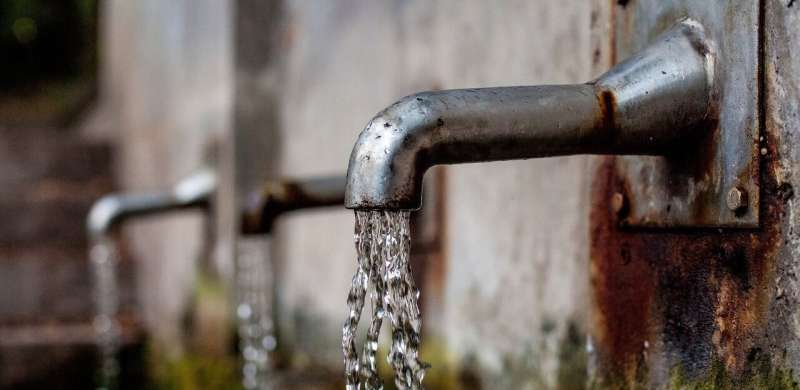Is your drinking water safe?

From Legionella bacteria and non-tuberculous mycobacteria, safe transport of mains water depends on best practice and good policy, environmental health experts say.
However, Flinders University academics warn current systems and legislation may not always be supported by solid scientific research or best practice in public health.
"There are major inconsistencies in Australia, and overseas jurisdictions, in managing Legionella and other contaminants in water systems," says Flinders University Associate Professor Richard Bentham, who will present on shortfalls in Legionella disease policy at the Environmental Health Australia National Conference in Adelaide this week (6-8 November 2019).
"For example, some of the requirements, to keep cold-water systems at the European standard well below 20C, is not always possible in Australia.
"Other policy settings on warm-water, hot- and cold-water systems are not always based on evidence-based science, and usually rely solely on a localised tick-box protocol, which opens the gate for all sorts of things to happen."
Environmental health experts, including Dr. Bentham, also warn that some positive policy changes can lead to other potential problems.
"For example, the removal of all lead-based tapware and pipeline systems, as introduced recently in Victorian schools, might inadvertently lead to increased public health risk from microbial contamination, such as opportunistic premise plumbing pathogens (OPPPs)," Dr. Bentham and colleagues say in a new scientific article.
"We recommend that future research into plumbing materials also weigh up its effect on OPPPs such as Non-tuberculous mycobacterium (which can cause serious pulmonary illness) ahead of changes in legislation.
Any changes in regulation regarding materials for potable water infrastructure need to be evidence based and must consider all potential risks to public health, the paper concludes.
"The complexities of water quality, materials of construction, microbial contamination, and public health risks are not well understood. For example, current data indicates limited scientific evidence to support the removal of brass fittings as a means of reducing lead exposures."
"Public health risks associated with heavy metal and microbial contamination of drinking water in Australia" has been published in the open access International Journal of Environmental Research and Public Opinion.
More information: Paul J Molino et al. Public Health Risks Associated with Heavy Metal and Microbial Contamination of Drinking Water in Australia, International Journal of Environmental Research and Public Health (2019). DOI: 10.3390/ijerph16203982
Provided by Flinders University



















